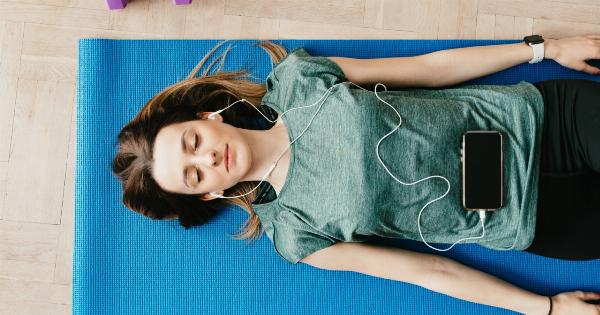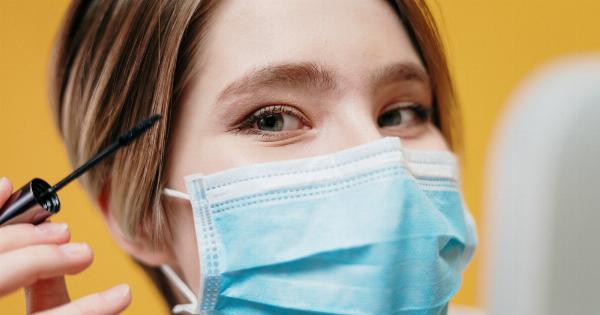Our eyes are one of the most important organs in our body. They receive visual information, allow us to see and perceive the world around us. However, many of us engage in habits that can damage our eyesight.
In this article, we will discuss the 20 habits that can harm your eyesight.
1. Staring at a Computer Screen for Long Periods
Staring at a computer screen for extended periods can cause digital eye strain. It can cause dry, irritated eyes, blurred vision, headaches, and neck and shoulder pain.
2. Not Blinking Enough
Blinking moistens our eyes, which eliminates eye strain and helps prevent dryness. When we look at a screen, we blink less frequently, causing our eyes to dry out.
3. Poor Lighting
Reading or working in low light conditions can strain your eyes, which can dull your vision and eye fatigue. Ensure that there is sufficient light to read and work in a well-lit area.
4. Not Wearing Sunglasses
Exposure to UV light can cause serious eye damage. Wearing a good pair of sunglasses protects your eyes from UV rays while you’re outside.
5. Rubbing Your Eyes
When your eyes are irritated or itchy, it can be tempting to rub them. However, rubbing your eyes can cause micro-abrasions on the eye’s surface, leading to serious eye infections or even scratching of the cornea.
6. Poor Diet
A well-balanced diet with fruits and vegetables goes a long way in maintaining good vision. Eating plenty of fruits and veggies rich in antioxidants such as vitamin A, vitamin C, and vitamin E can improve your sight.
7. Not Getting Enough Sleep
Lack of sleep can lead to fatigue, dry eyes, eye spasms, and eye irritation. A minimum of 7 to 8 hours of sleep each night is critical in calming your eyes.
8. Smoking
Smoking is harmful to your eyesight. It causes macular degeneration, cataracts, and other vision-related problems. Quitting smoking is one of the best things you can do for your eyes and your health in general.
9. Staring at Your Phone for Long Hours
Staring at your phone screen for too long can cause digital eye strain, dry eyes, discomfort, and eye fatigue. It is recommended that you look away from your screen every 20 minutes for 20 seconds.
10. Ignoring Eye Health Care
Ignoring your eye health can be a massive mistake and can have catastrophic consequences. You should have frequent eye exams with a qualified optometrist or ophthalmologist to identify potential vision problems and catch them early.
11. Exposure to UV Light
UV radiation enters our eyes each time we step outside without protection. Too much exposure can cause cataracts, photokeratitis, and pterygium. By being careful and wearing protective eyewear, you can prevent these eye illnesses.
12. Using Expired Eye Drops
Expired eye drops can lose their potency and cause eye infections. It can also lead to potential side effects such as redness or irritation. When purchasing eye drops, check their expiration date and do not use them beyond their period.
13. Poor Hygiene
Touching your eyes with dirty hands can introduce unwanted bacteria or viruses into your eyes, exposing you to possible infections or other eye problems. It’s essential to wash your hands to minimize the risk of infection when handling your eyes.
14. Not Wearing Eye Protection When Working with Tools
It’s essential to wear eye protection when working with tools, machines, and other equipment that could cause eye injuries.
Your workplace must provide workers with the correct protective gear for employees to wear while working in hazardous locations or working with tools.
15. Reading in Poor Light
Reading in inadequate light conditions can strain and fatigue your eyes. It is crucial to read in well-lit areas and take short breaks to rest your eyes and avoid eye strain.
16. Overusing Eye Drops
Overusing eye drops can wash away protective oils from your eyes and exacerbate the problem it intended to relieve. Only use eye drops when recommended by an optometrist or ophthalmologist.
17. Inadequate Lubrication of Your Eyes
Inadequate lubrication of your eyes can trigger dryness that causes red, irritated eyes and blurred vision. Apply artificial tears to hydrate and lubricate your eyes when they are dry, as recommended by an optometrist or ophthalmologist.
18. Close Reading/Writing
Close reading and writing can cause eye strain, blurred vision, and headaches. Ensure that you sit at an optimum distance from your monitor, laptop, or a book, and rest your eyes periodically to relieve any eye pressure.
19. Genetics
Some vision problems are inherited. Certain illnesses resulting in blindness or vision loss may be passed down from parents, making it imperative to be mindful of your family’s eye health history.
20. Overexposing your Eyes to Pollution
Pollution includes dust particles, smoke, or other harmful substances in the air that increase the risk of vision-related issues. Wear protective eye gear and wash your eyes regularly to prevent pollution-related damage to your eyes.




























